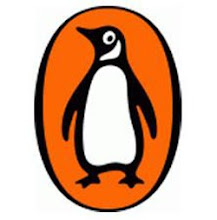Naved Akbar, Associate Editor of our Indian language titles, has provided a write-up of the launch of Katha Urja.com:
Penguin Books India and Yatra Books launched their recently published collection of short-stories Katha Urja.com, edited by Rajesh Jain at Amaltas Hall, India Habitat Centre on Wednesday, August 6, 2008. The function was presided over by renowned Hindi critic and writer
Prof Namvar Singh, and the book was unveiled by educationist, scientist and former UGC Chairman
Prof Yashpal.
The book is first of its kind in so far as it is the first anthology of Hindi short stories by authors who are all engineers by profession. Speaking on the occasion, Prof Yashpal, in his inimitable informal style said that the field of science might look dull from outside, but the fact is that the machines have a rhythm and beauty of their own. In this field, the scientists confront many an interesting situation, have great experiences, enjoy the discovery of a number of new things, and the joy of repairing a machine which has gone out of order is unique.
Prof Yashpal made a special mention of two stories from the anthology he liked:
Avinash Motu urf Ek Aam Admi by Swayam Prakash and
Al Ghazala by Narendra Nagdev. If a sensitive soul can give these experiences the shape of words, then it does not only impart knowledge, but also provides entertainment to the reader.
Explaining the title of the book, the editor of the book Rajesh Jain, himself an engineer, said that just as the energy provided by machines, the words too possess immense energy. If we used this energy in a proper manner, he suggested, we could greatly help mankind. Naved Akbar then read out the story
Programming, by Rajesh Jain, on the occasion.
Hailing the efforts of Penguin and Yatra in the field of the publication of Hindi books, Prof Namvar Singh in his presidential address emphasised the need to publish good books. Expressing his views of Katha Urja.com, he drew the attention of the audience towards the human aspect of the stories, so that even though our lives have become heavily dependant on machines, these machines can never replace the human sensitivities.
Machines may work for us, he mused, but they cannot be substitutes for human sense of touch. A story can be a story in the real sense of term only if it has energy, warmth and love. Prof Namvar Singh also gave Swayam Prakash’s Avinash Motu urf Ek Aam Admi special mention. Incidentally, Penguin and Yatra published a book by Swayam Prakash titled
Aadhi Sadi ka Safarnama in 2006.
Despite torrential rain, a number of well-known people from different fields attended the function and made it a success.






